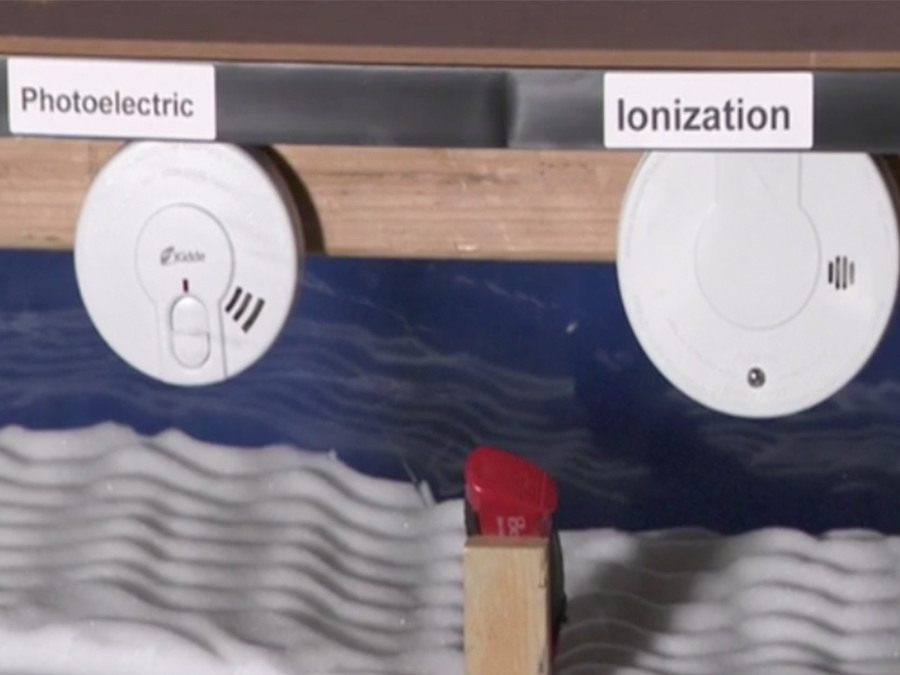Not all smoke detectors are equal, and the type of smoke detector installed in many homes might not sound off in all fires.
Smoke alarm manufacturers sell alarms with two types of technology.
Ionization smoke alarms are most commonly found in homes in the United States. They set off quickly in fast-moving fires like one that might start in your kitchen. Such fast-moving fires create many small particles which the ionization smoke alarm technology detects well.
However, fires that smolder for a long time before turning into raging fires create large particles in the air. Ionization smoke detectors don’t detect these fires as quickly.
Photoelectric smoke alarm technology works well for smoldering fires — fires that often occur at night when people are sleeping.
“I had no idea there were two types of smoke alarms. I thought a smoke alarm is a smoke alarm,” said Mindy Cook, a wife and mother of two whose smoke detector did not go off when a fire smoldered in her Salt Lake City-area home in December.
“My smoke alarm never went off,” she said. “When I came out of the door there were flames shooting up and cascading down the front of the house.”
Her next door neighbor pounded on her door and woke the family up. Everyone made it out safely, but the house was destroyed in the fire.
“We were really surprised because when someone is like, ‘your house is on fire,’ you assume you’re going to hear your smoke detector. But they weren’t going off,” she said.
Cook says she had two smoke detectors that she had recently tested. One alarm was less than a month old. She now believes it used ionization technology.
What experts say
“I don’t think the public has been educated that there are two types of smoke detectors,” said fire alarm systems expert Lt. Derrick Johnson, who is also a firefighter at the Denver Fire Department.
He suggests homes have “both” smoke alarm technologies to protect residents from fast and slow burning fires.
He says having both technologies in your home can give you more warning of a fire.
“Different studies have shown it could be seconds or it could be minutes depending on smoke and fire,” Johnson said.
You can buy a separate ionization smoke detector and a separate photoelectric smoke alarm. At most big retail stores, they run about $7 each. Manufacturers also offer dual-technology smoke alarms with both ionization and photoelectric technology. They run about $15.
Dual-technology ionization/photoelectric alarms are not the same as a single technology smoke alarm that also has a carbon monoxide alarm.
A test conducted by The Now national investigative correspondent Jace Larson showed when polyurethane material, commonly used in furniture and mattress toppers, was slowly heated a photoelectric smoke alarm went off faster than an ionization detector.
The test was conducted using a soldering iron and material inside a glass tank at the forensic consulting firm AEI Corporation’s test facility in Denver.
“It would have been nice to know there was different kinds of smoke detectors,” Cook said. “You shouldn’t have to rely on your neighbor to get you out of bed if your house is on fire, you ought to be able to rely on your smoke detector.”


